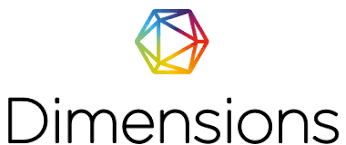Pengaruh Variasi Colling pada Pengelasan GMAW Terhadap Uji Tarik dan Uji Kekerasan pada Baja ST 60
 Abstract views: 195
,
Abstract views: 195
,
 PDF downloads: 202
PDF downloads: 202
Abstract
The technology of the manufacturing industry is developing rapidly, where the rapid development of this technology cannot be separated from the welding field. In the welding process, thermal heat is used until the material melts, the heat change will also cause changes in the structure, stress and also deformation of the material. This is because the more carbon elements are captured, the more martyred structures are formed. This causes an increase in the value of hardness and tensile strength values in the material. The purpose of this study was to determine the effect of the temperature of the cooling medium oil, salt water, water. dromus, and free air in GMAW welding on the tensile test of ST 60 steel. To determine the effect of cooling temperature medium of Oil, Salt Water, Dromus Water, and Free Air on GMAW welding toward the tensile test and hardness test of ST 60 steel. Several means used for testing are calculating the tensile stress Mpa and HVN hardness. This research method used the experimental method. The GMAW welding process variations of coolant were used, such as oil, salt water, dromus water, and free air with a time of 25 minutes and electic current of 100 A. The type of seam used was a V type with angle of 30o. The tests carried out were tensile and hardness test. The highest average value of the tensile stress from the the salt water coolant specimen was 490.23 Mpa. The highest average value of the tensile strain from free air specimens was 35.45 Mpa. The average value of HVN hardness from Oil specimens was 208.3 HVN, salt water was 231.0 HVN, Dromus water was 215.5 HVN, and free air was 228.0 HVN. From the average value of HVN hardness, the highest value observed was the salt water specimen with 231.0 HVN.
Copyright (c) 2021 Accurate: Journal of Mechanical Engineering and Science

This work is licensed under a Creative Commons Attribution 4.0 International License.
Authors who publish with this journal agree to the following terms:
- Authors retain copyright and grant the journal right of first publication with the work simultaneously licensed under a Creative Commons Attribution License that allows others to share the work with an acknowledgement of the work's authorship and initial publication in this journal.
- Authors are able to enter into separate, additional contractual arrangements for the non-exclusive distribution of the journal's published version of the work (e.g., post it to an institutional repository or publish it in a book), with an acknowledgement of its initial publication in this journal.
- Authors are permitted and encouraged to post their work online (e.g., in institutional repositories or on their website) prior to and during the submission process, as it can lead to productive exchanges, as well as earlier and greater citation of published work (See The Effect of Open Access).














